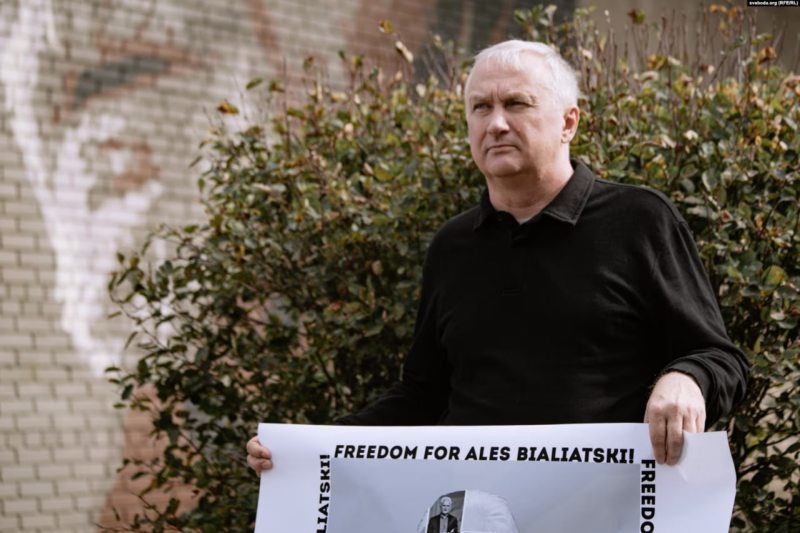Pavel Sapelka: "Among 1,300 political prisoners, all candidates for this position from the previous elections are held incommunicado"
Against the background of repressions lasting since the previous presidential election campaign, on October 23, the Lukashenka regime announced the date of the seventh presidential election. They were scheduled six months before the expected date of the event — they were supposed to take place no later than July 20. But the authorities chose January 26. Meanwhile, the "Human Rights Defenders for Free Elections" campaign announced the start of an expert mission. We talked with Viasna human rights defender Pavel Sapelka about the conditions of the election campaign, the role of monitoring by human rights defenders, and the goals of the campaign.

- Viasna human rights activist Pavel Sapelka. Photo: Radio Svaboda
As the human rights activist notes, there is no need to look for the rationale behind scheduling the elections earlier, but we can say for sure that the interests of the citizens of Belarus were not considered:
"It is quite obvious that the society has not requested an urgent presidential election that will follow the existing rules of the game. The country is plunged into the darkness of repression, legal political life is at a standstill, freedom of speech and information has been brutally suppressed, and there is no opportunity of competition. Among 1,300 political prisoners, all candidates for this position from the previous elections are held incommunicado. Several candidates from previous years have been arbitrarily convicted and have their civil rights restricted. Everyone is waiting with a heavy heart for more repression and preventive arrests in order to avoid any manifestations of disloyalty.
It almost feels awkward to mention that the decision to call elections is made by the House of Representatives — a pool of loyal people, appointed by the authorities, who cosplay parliamentary functions. In a democratic state, such a decision would not be made secretly and unexpectedly, it would be preceded by a free discussion of the issue. And during the discussion, the interests of voters and other participants in the electoral process would certainly be taken into account.
And although in current conditions the procedure for calling elections is the smallest of all problems, in the future it is necessary to legislatively return to this process equal conditions for all potential candidates and other participants in the electoral process, including the right to receive timely information about the start of the election campaign."
The statement of the "Human Rights Defenders for Free Elections" campaign notes that the task of human rights defenders in any government regime is to exercise civil control over the actions of the authorities, therefore they consider it necessary to monitor this election campaign to be able to document what is happening based on the information collected and continue to evaluate the actions of the authorities in terms of international standards of free and democratic elections.
"The expert mission will collect and analyze information about the election campaign based on open sources and reports from voters from Belarus. We count on information from people in Belarus about violations during the election campaign and, at the same time, call for compliance with digital hygiene and safe communication rules. Concerned voters will be able to send us information about violations through an anonymous form and other secure information channels."
Pavel Sapelka explains that the campaign has repeatedly emphasized the important role of independent election monitoring.
"Even under severe restrictions of the observers' capabilities, we can achieve our goal and evaluate the processes that will take place in Belarus. This is important in the context of constant use of propaganda and disinformation by the authorities, together with involving representatives of GONGO, dependent and loyal people in the imitation of observation. Pseudo-observers from the CIS and the SCO will be invited to simulate external approval of extending the dictator's powers. In these circumstances, we consider it important to have a reasonable assessment of the conditions of political processes and current events from the perspective of independent observation and human rights."
The Viasna human rights activist says that the campaign will continue to report on the main stages of the electoral process, as well as comment on the most important events. Educational materials will also be posted on the campaign's website.
"Despite the situation, we still believe that political elections are a normal element of democracy, which we will come to one day."

